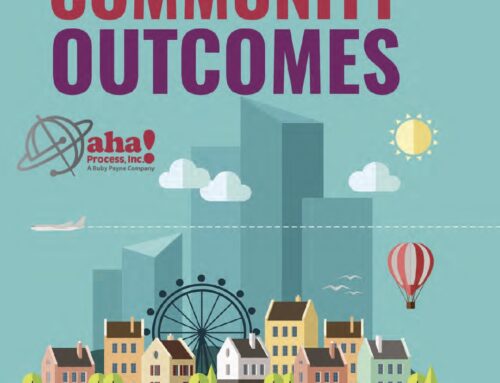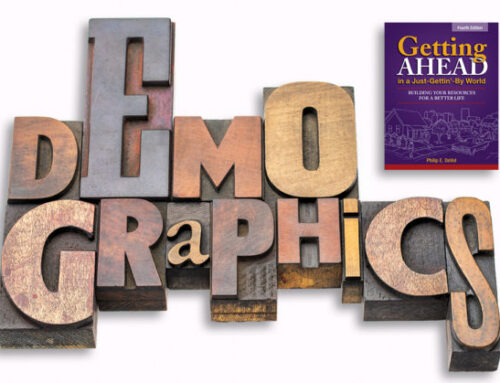Many people report that they had aha! moments when they first heard Ruby Payne’s ideas. (Hence the name of her company!) I certainly had an aha! moment. I was in the backseat, on the way to dinner with my wife and some other friends, reading A Framework for Understanding Poverty. When I put it down I said,
“Wow, I’ve been doing it [addiction treatment and prevention] all wrong!”
Aha! moments, those sudden insights that take us by surprise, can change the way we think and behave. Taken further, they may change the way we design programs, policies, and procedures. But when does an aha! moment turn into a paradigm shift? When does tweaking our programs turn into a deeply rooted, foundational change? When does it affect community sustainability?
I’m posing this question to those who have organized themselves to apply concepts from Bridges Out of Poverty. Some of you have been at it for a few years. You have taken our information and made it your own, found your own ways of expressing the ideas, applied them in different ways, and expanded our collective learning. What underlies your work? Does it constitute a paradigm shift? If so, how do you describe it?
I was talking the other day with a friend named Bonnie from South Bend, Indiana, and she decided she’d have to have this discussion over drinks. Somehow, a couple of drinks seemed important to the success of the discussion. She might have something there. I can’t imagine having a meeting on this topic with all that a meeting entails—agenda, minutes, flip charts, reports, etc. No, this is when conversation has to flow.
So let me suggest that you get together with Bridges friends outside of the confines of the office and work settings and have at it.
For the sake of discussion, let’s begin by agreeing on the definition of a paradigm shift. Google “paradigm shift” if you like (I did), or check the dictionary. But what if we kept it simple?
A paradigm is:
- a set of forms or constructs that contains a particular element
- a single stem or theme
A paradigm shift is:
- a worldview that replaces another
- a new way of doing our work
Bonnie has agreed to contribute to my blog with the results of her conversation. I’m hoping that the rest of you will weigh in too.
Cheers!
– Phil DeVol, aha! Process Consultant
About the Author/Consultant: Phil DeVol, of Marengo, Ohio, has been consulting on poverty issues since 1997 and is co-author of Bridges Out of Poverty: Strategies for Professionals and Communities. He works with organizations and communities to redesign programs which ensure sustainability and better serve people in poverty. Philip is the author of Getting Ahead in a Just-Gettin’-By World: Building Your Resources for a Better Life, a workbook that combines Dr. Ruby K. Payne’s work on the hidden rules of class, research on knowledge transfer, and the knowledge of participants living in poverty. Philip served as director of a substance abuse treatment facility for nearly 20 years. He consults for aha! Process, Inc.








